In August 2010, I attended the Live Industry Professional Panel (Mary Kole, Anica Rissi, Joanna Volpe, Suzie Townsend) about voice on WriteOnCon. (Click on the link above to see the whole chat transcript.) Here's the third and last part of my notes (click here for Part One and Part Two):
Stories with appealing voices often have quirky titles. Do you think title needs to reflect main character's voice?
Suzie Townsend: Quirky titles are cool. But titles change. The voice and a story is what's so much more important.
Anica Rissi: The title almost always changes. I don't really care what the title is when I acquire it. Though a great title can make me read that submission first.
Joanna Volpe: No. But the title should reflect the overall tone of the story.
Mary Kole: Title love lasts five seconds (or long enough to get you to the cash register). Prose/voice love must last four hours or more while you devour the book!
What about dialect/accents? I see a lot of writers adding the dialectical spelling to the MS.
Anica Rissi: If you're not Faulkner, you're probably not writing dialect well.
Suzie Townsend: Dialects and accents if done right are awesome, but it can't get in the way of the story. Sometimes if it's too heavy, it's distracting and even annoying. Please. I love Faulkner, but even Oprah had a hard time selling him to the masses.
Mary Kole: Dialect annoys me. I'd much rather have a hint of the regional flavor than dialogue that I have to sound out as I read it. It makes my eyes automatically gloss over the heavily-accented words.
Joanna Volpe: Agreed--dialect can be distracting...if used, use it sparsely. Unless, of course, you're Faulkner.
Anica Rissi: TRUST YOUR READER. If you're writing your character well, if the voice rings true, we'll hear that southern accent (or whatever) in our heads.
Joanna Volpe: Yes, Anica! Think of GIRLS IN TRUCKS--no dialect, but I heard that southern accent all right!
In terms of multiple POVs: The voice isn't equivalent just to different personalities, right? Should there should also be differences in terms of syntax and diction?
Suzie Townsend: YES. Different syntax, diction, style, personality, completely different voice.
Mary Kole: OF COURSE. You and I could be walking down the same exact street, but I could see gross, sweating garbage, and you could see the rays of heaven shining down on the glistening cobblestones as the pigeons wing o'erhead...etc. Every person/character has their own rhythm and style and way of putting things.
If voice can't be taught, and someone's voice has been developed over the years, can age be a disadvantage? Can your voice outgrow your audience?
Anica Rissi: One of my bestselling authors is over 50.
Suzie Townsend: Laurie Halse Anderson said at Brooklyn Book Festival last year that she'll always be 15 at heart, no matter how old she really is. Read. Your. Genre.
Anica Rissi: And plenty of teen authors can't write an authentic teen voice.
Joanna Volpe: Well. Yes and no. It depends on the author. But I've seen some experienced authors lose track of today's YA voice. I've also seen some debut authors over 50 totally NAIL it.
Mary Kole: If you find your voice outgrowing the teen sphere or somehow going outside of it, I'd follow your natural voice. As I said before..teens have their bs-o-meter. But I agree with everyone...voice and age are completely disconnected. There are plenty of grown-ups who still wake up every day feeling 16 years old.
I've heard a few people talking about sarcasm NOT working. When DOES it work?
Anica Rissi: It works when it's true to the character, true to the story, true to the moment. GETTING REVENGE ON LAUREN WOOD is a great mixture of sarcasm, snark, AND earnest, genuine emotion. Much of the snark comes from true pain/fear/insecurity. So it feels real and right, and isn't overused.
Mary Kole: Sarcasm works when it's just part of the character, not something that you put on your character like an ill-fitting coat to indicate: This is a teenager in their natural habitat. They are drinking coffee and hating the world. Death Cab for Cutie plays in the background. This is authentic, people!
Do you see a lot of books with a boy MC whose voice is unauthentic? (More so than female POVs?)
Suzie Townsend: Yes. A lot of times you can tell when it's a female writer. Boys really don't go on and on about how beautiful a girl's makeup is. They say she's hot.
Joanna Volpe: No, actually. I think it's pretty even for boys and girls on the authentic voice front. Well, Suzie's point is one of the more common mistakes. The author lets their girl-side show.
Anica Rissi: Nope, I see plenty of authentic boy MC voices. I think boys, like girls, are individuals. Your boy MC should be distinctly himself. So his voice should ring true to who he is, not to who boys in general are supposed to stereotypically be. That said, if he's not at all interested in sex, I don't believe he's a teenage boy. (Same for girls, btw.) Look, publishers do think of things in terms of "girl book" or "boy book" or "appeals to both" and we package them accordingly. Sometimes a girl book has a boy MC, and that's probably a diff kind of story than a boy MC boy book. And yes, this is something that drives me crazy, but I see the necessary in the evil.
Mary Kole: Umm...I don't want to say anything totally controversial and get put in the bad girl seat, but I almost feel like the focus in a lot of boy-driven books is more on plot and adventure and action and scene, and less on voice and interiority. That's not to say that you can get away with crappy voice, but for boy MCs the voice is sometimes...simpler. I want great strong voices in MG "boy books"!!!! I do!!! I feel like, though, sometimes, and I don't think I'm totally wrong here, but plot may eclipse the need for a really strong voice-driven narrative, especially in MG. But it has to have voice, too, of course.
Elana Johnson: (total sidenote, but The Replacement is a brilliant male MC book.)
Hannah Moskowitz: Definitely depends on the book for me. I just have a VERY voicey boy MG coming out in Fall 2011, and I've been frustrated by some people's responses to that...the "Boy MG panel" at SCBWI was especially frustrating. "Boys don't like to think! Boys want lions and spies!" You generalize girls like that, you get shot, you know? But that's a whole different story haha.
What makes a voice teenish? Teens themselves are pretty varied people.
Joanna Volpe: It's the sensibility of the overall story and character that makes something a TEEN book vs an ADULT book with a teen character.
Mary Kole: The teen part of teen literature isn't about having a teen voice, per se, it's about having a story and character that are authentic to the teen experience...something teens can resonate with.
Anica Rissi: Often it's not what makes the voice teen so much as what makes the voice so clearly NOT teen.
But if it's teen, it's all about the intensity of the moment. Teens don't have a ton of perspective on what's going to matter in five years, five minutes. It's all about NOW. I don't mean to be condescending here. There's something amazing/wonderful about that, and I think one of the reason adults read YA is to reconnect to that intensity.
Does voice make up for the general cliche of that "powers-at-16-and-oh-no-it's-the-apocalypse" storyline? Because when I was a teen, that's what I wanted to read, so now it's what I want to write.
Mary Kole: The perfect book is a mix of a great premise and great execution. If you have a familiar-sounding premise, you can always make up for that with unique execution (which includes voice).
Joanna Volpe: ABSOLUTELY. Voice trumps all. Heck, if there were another angel book with a completely compelling, fresh, exquisite voice that we've never heard before, it certainly has a good chance at selling. Good writing is good writing.
Anica Rissi: depends what you mean by cliche. Most of the books we love have familiar storylines at their hearts. That's part of what makes the book relatable--the core is universal. It's what makes that story different that's the hook, and that makes it fun to read.
Suzie Townsend: Yes. For a while I was going on and on about being over paranormal and then I read a great query and first 10 pages with an awesome voice, and I definitely want to see it. That said if the manuscript is going to compete with a title on my list then I might have to pass - so it depends how similar the concepts are.
Will you take a book with great voice over a book with great plot (because plot can be worked on easier than voice)?
Mary Kole: YES.
Suzie Townsend: YES. But I have to love love *love* the voice.
Joanna Volpe: Yup. Plot is fixable...voice is much harder to fix.
Anica Rissi: Yup. I can fix your plot. But if there's NO plot. No.
Is it possible to have the character's voice grow as the character develops in the story?
Anica Rissi: Your main character should grow/develop over the course of her plot arc. What she learns might influence her voice slightly, I suppose. Like a character who starts out snooty might become less so. "It should be authentic to the character" (and story, and plot) could really be applied as the answer to almost any other questions you have for us. Subtle is key. We want our characters to experience huge things on the page, but remember that most humans change very little.
Suzie Townsend: YES. Some of my favorite stories have ones where the character changes and develops of the course of the story and as a result their voice shifts and changes with them, but again it has to be subtle and authentic to the character.
Lisa and Laura Roecker: I think BEFORE I FALL is a great example of a voice that grows and changes slightly as the MC develops.
Mary Kole: To that, I say, the character has to be there from page one, and the voice has to be there. The character can grow and change and their voice might grow and change a little bit as they progress through the story, but the voice must still be present immediately and completely recognizable. You can't use character "growth" to justify it taking you an entire manuscript to develop voice. I guess I'm saying that...even if your character grows and changes, the voice has to be there from the first moment and it still needs to be the same voice...only with new shades and layers...by the last moment.
Twitter Links
Anica Rissi: @editrixanica
Mary Kole: @kid_lit
Suzie Townsend: @sztownsend81
Anica Rissi: The title almost always changes. I don't really care what the title is when I acquire it. Though a great title can make me read that submission first.
Joanna Volpe: No. But the title should reflect the overall tone of the story.
Mary Kole: Title love lasts five seconds (or long enough to get you to the cash register). Prose/voice love must last four hours or more while you devour the book!
What about dialect/accents? I see a lot of writers adding the dialectical spelling to the MS.
Anica Rissi: If you're not Faulkner, you're probably not writing dialect well.
Suzie Townsend: Dialects and accents if done right are awesome, but it can't get in the way of the story. Sometimes if it's too heavy, it's distracting and even annoying. Please. I love Faulkner, but even Oprah had a hard time selling him to the masses.
Mary Kole: Dialect annoys me. I'd much rather have a hint of the regional flavor than dialogue that I have to sound out as I read it. It makes my eyes automatically gloss over the heavily-accented words.
Joanna Volpe: Agreed--dialect can be distracting...if used, use it sparsely. Unless, of course, you're Faulkner.
Anica Rissi: TRUST YOUR READER. If you're writing your character well, if the voice rings true, we'll hear that southern accent (or whatever) in our heads.
Joanna Volpe: Yes, Anica! Think of GIRLS IN TRUCKS--no dialect, but I heard that southern accent all right!
Mary Kole: OF COURSE. You and I could be walking down the same exact street, but I could see gross, sweating garbage, and you could see the rays of heaven shining down on the glistening cobblestones as the pigeons wing o'erhead...etc. Every person/character has their own rhythm and style and way of putting things.
Anica Rissi: One of my bestselling authors is over 50.
Suzie Townsend: Laurie Halse Anderson said at Brooklyn Book Festival last year that she'll always be 15 at heart, no matter how old she really is. Read. Your. Genre.
Anica Rissi: And plenty of teen authors can't write an authentic teen voice.
Joanna Volpe: Well. Yes and no. It depends on the author. But I've seen some experienced authors lose track of today's YA voice. I've also seen some debut authors over 50 totally NAIL it.
Mary Kole: If you find your voice outgrowing the teen sphere or somehow going outside of it, I'd follow your natural voice. As I said before..teens have their bs-o-meter. But I agree with everyone...voice and age are completely disconnected. There are plenty of grown-ups who still wake up every day feeling 16 years old.
Anica Rissi: It works when it's true to the character, true to the story, true to the moment. GETTING REVENGE ON LAUREN WOOD is a great mixture of sarcasm, snark, AND earnest, genuine emotion. Much of the snark comes from true pain/fear/insecurity. So it feels real and right, and isn't overused.
Mary Kole: Sarcasm works when it's just part of the character, not something that you put on your character like an ill-fitting coat to indicate: This is a teenager in their natural habitat. They are drinking coffee and hating the world. Death Cab for Cutie plays in the background. This is authentic, people!
Do you see a lot of books with a boy MC whose voice is unauthentic? (More so than female POVs?)
Suzie Townsend: Yes. A lot of times you can tell when it's a female writer. Boys really don't go on and on about how beautiful a girl's makeup is. They say she's hot.
Joanna Volpe: No, actually. I think it's pretty even for boys and girls on the authentic voice front. Well, Suzie's point is one of the more common mistakes. The author lets their girl-side show.
Anica Rissi: Nope, I see plenty of authentic boy MC voices. I think boys, like girls, are individuals. Your boy MC should be distinctly himself. So his voice should ring true to who he is, not to who boys in general are supposed to stereotypically be. That said, if he's not at all interested in sex, I don't believe he's a teenage boy. (Same for girls, btw.) Look, publishers do think of things in terms of "girl book" or "boy book" or "appeals to both" and we package them accordingly. Sometimes a girl book has a boy MC, and that's probably a diff kind of story than a boy MC boy book. And yes, this is something that drives me crazy, but I see the necessary in the evil.
Mary Kole: Umm...I don't want to say anything totally controversial and get put in the bad girl seat, but I almost feel like the focus in a lot of boy-driven books is more on plot and adventure and action and scene, and less on voice and interiority. That's not to say that you can get away with crappy voice, but for boy MCs the voice is sometimes...simpler. I want great strong voices in MG "boy books"!!!! I do!!! I feel like, though, sometimes, and I don't think I'm totally wrong here, but plot may eclipse the need for a really strong voice-driven narrative, especially in MG. But it has to have voice, too, of course.
Elana Johnson: (total sidenote, but The Replacement is a brilliant male MC book.)
Hannah Moskowitz: Definitely depends on the book for me. I just have a VERY voicey boy MG coming out in Fall 2011, and I've been frustrated by some people's responses to that...the "Boy MG panel" at SCBWI was especially frustrating. "Boys don't like to think! Boys want lions and spies!" You generalize girls like that, you get shot, you know? But that's a whole different story haha.
Joanna Volpe: It's the sensibility of the overall story and character that makes something a TEEN book vs an ADULT book with a teen character.
Mary Kole: The teen part of teen literature isn't about having a teen voice, per se, it's about having a story and character that are authentic to the teen experience...something teens can resonate with.
Anica Rissi: Often it's not what makes the voice teen so much as what makes the voice so clearly NOT teen.
But if it's teen, it's all about the intensity of the moment. Teens don't have a ton of perspective on what's going to matter in five years, five minutes. It's all about NOW. I don't mean to be condescending here. There's something amazing/wonderful about that, and I think one of the reason adults read YA is to reconnect to that intensity.
Does voice make up for the general cliche of that "powers-at-16-and-oh-no-it's-the-apocalypse" storyline? Because when I was a teen, that's what I wanted to read, so now it's what I want to write.
Mary Kole: The perfect book is a mix of a great premise and great execution. If you have a familiar-sounding premise, you can always make up for that with unique execution (which includes voice).
Joanna Volpe: ABSOLUTELY. Voice trumps all. Heck, if there were another angel book with a completely compelling, fresh, exquisite voice that we've never heard before, it certainly has a good chance at selling. Good writing is good writing.
Anica Rissi: depends what you mean by cliche. Most of the books we love have familiar storylines at their hearts. That's part of what makes the book relatable--the core is universal. It's what makes that story different that's the hook, and that makes it fun to read.
Suzie Townsend: Yes. For a while I was going on and on about being over paranormal and then I read a great query and first 10 pages with an awesome voice, and I definitely want to see it. That said if the manuscript is going to compete with a title on my list then I might have to pass - so it depends how similar the concepts are.
Will you take a book with great voice over a book with great plot (because plot can be worked on easier than voice)?
Mary Kole: YES.
Suzie Townsend: YES. But I have to love love *love* the voice.
Joanna Volpe: Yup. Plot is fixable...voice is much harder to fix.
Anica Rissi: Yup. I can fix your plot. But if there's NO plot. No.
Is it possible to have the character's voice grow as the character develops in the story?
Anica Rissi: Your main character should grow/develop over the course of her plot arc. What she learns might influence her voice slightly, I suppose. Like a character who starts out snooty might become less so. "It should be authentic to the character" (and story, and plot) could really be applied as the answer to almost any other questions you have for us. Subtle is key. We want our characters to experience huge things on the page, but remember that most humans change very little.
Suzie Townsend: YES. Some of my favorite stories have ones where the character changes and develops of the course of the story and as a result their voice shifts and changes with them, but again it has to be subtle and authentic to the character.
Lisa and Laura Roecker: I think BEFORE I FALL is a great example of a voice that grows and changes slightly as the MC develops.
Mary Kole: To that, I say, the character has to be there from page one, and the voice has to be there. The character can grow and change and their voice might grow and change a little bit as they progress through the story, but the voice must still be present immediately and completely recognizable. You can't use character "growth" to justify it taking you an entire manuscript to develop voice. I guess I'm saying that...even if your character grows and changes, the voice has to be there from the first moment and it still needs to be the same voice...only with new shades and layers...by the last moment.
Twitter Links
Anica Rissi: @editrixanica
Mary Kole: @kid_lit
Suzie Townsend: @sztownsend81

























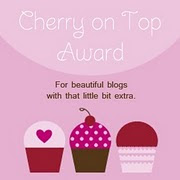
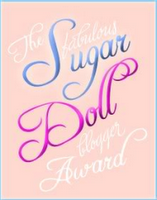
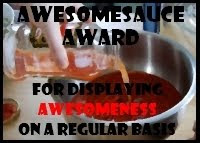
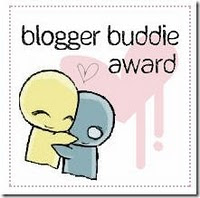


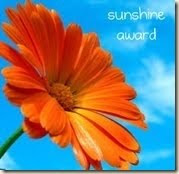






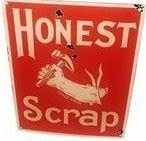

3 comments:
This is a fantastic post, Annie!
excellent notes. very fun.
What a great post! Thanks, Annie :)
Post a Comment